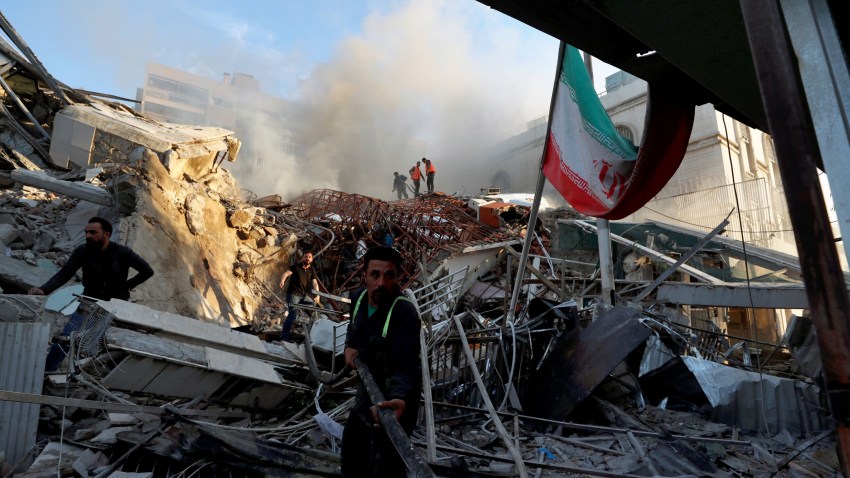The U.S. dispatched its top military commander for the Middle East to Israel yesterday as the two sides brace for Tehran to retaliate for Israel’s strike on an Iranian consular building in Damascus last week. Israel said yesterday it would strike back if Iran launches an attack directly from its territory. (New York Times; AP)
Our Take
Israel’s attack in Damascus, which killed seven Iranian commanders, has raised fears that the covert and indirect conflict between Israel and Iran could escalate into full-scale and direct conflict. If Tehran responds to the strike by launching a publicly attributed and direct attack on Israel from its territory, it would cross a threshold that both sides have so far backed away from.
Of course, that would be a worst-case scenario, as Iran has many other options and targets to choose from. But it’s one that U.S. officials believe is more likely now than it has been since the outbreak of war in Gaza over six months ago. It’s also one U.S. President Joe Biden has been working hard to avoid, as it would likely draw in the U.S. in some capacity. That effort has notably included backchannel engagement and indirect communications via Gulf state intermediaries between Washington and Tehran to deescalate potential flare-ups, including with Houthi rebels in Yemen and other Iranian proxies in Iraq.

